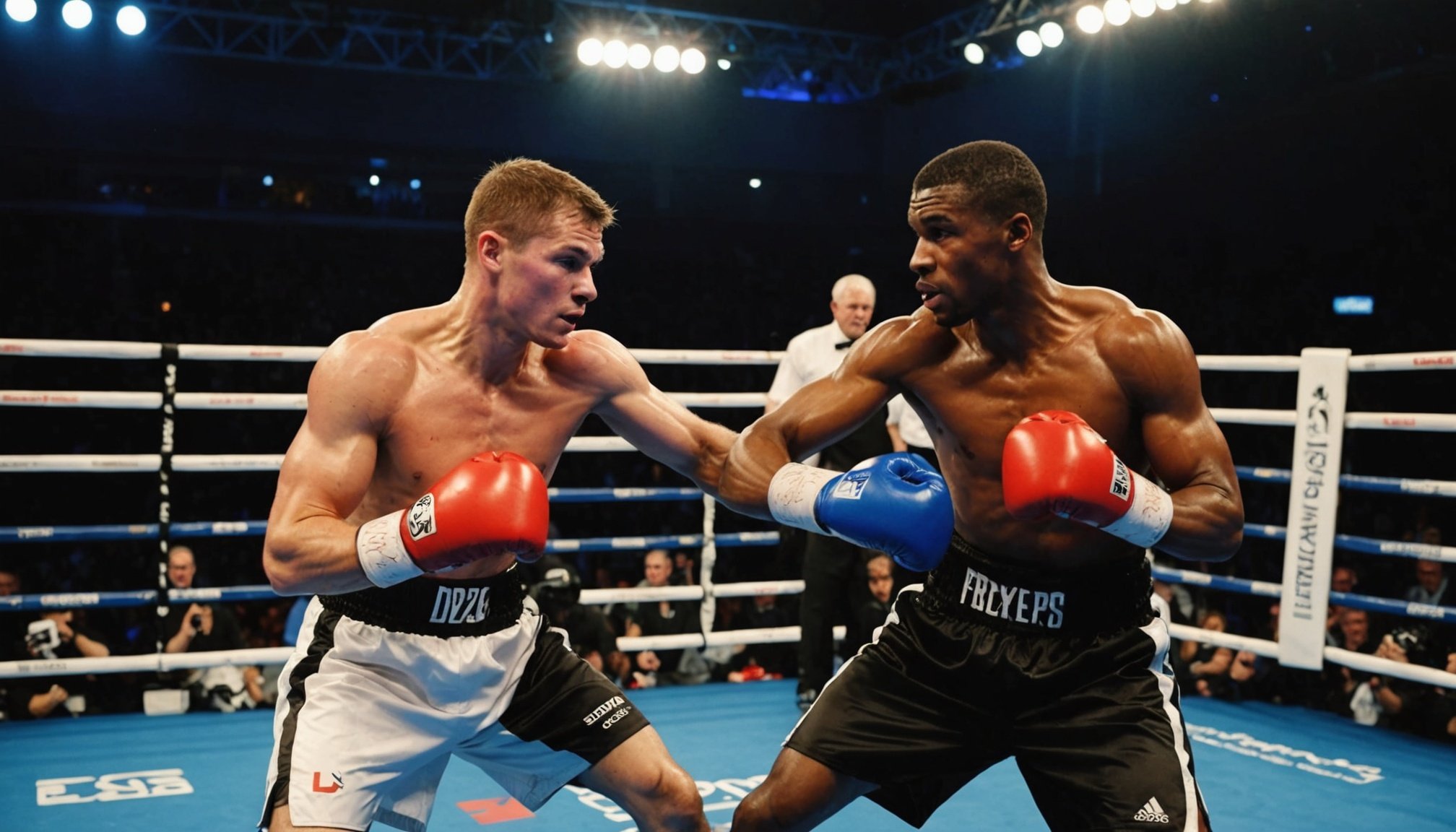Essential Components of Sports Psychology for Boxers
In the demanding world of boxing, mental resilience is as crucial as physical prowess. Sports psychology techniques are essential for boxers to maintain peak performance and handle pressure effectively. These techniques include visualization, goal-setting, and positive self-talk, which empower athletes to control their mindset.
The importance of mental resilience cannot be overstated. Boxers often face intense pressure both inside and outside the ring. By fostering mental toughness, they can stay focused and calm, even in high-stakes situations. This resilience is vital for pushing through challenging bouts and maintaining a strategic approach.
Topic to read : Top Strategies for UK Sumo Wrestlers to Enhance Balance and Stability Skills
Mental training plays a pivotal role in amplifying physical training. While physical conditioning prepares boxers’ bodies for the rigours of competition, psychological training fortifies their minds. Techniques such as meditation, breathing exercises, and mindfulness enhance concentration, enabling boxers to make quick and effective decisions during matches.
The effective strategies for boxers include a tailored blend of both mental and physical preparation, ensuring they are fully equipped for the challenges of the ring. By integrating psychological and physical aspects, boxers can achieve a harmonious balance, leading to optimal performance. This holistic approach not only develops superior athletes but also cultivates resilient individuals.
Also read : Essential Factors UK Wrestlers Should Weigh When Selecting the Perfect Wrestling Shoes
Mental Training Techniques
Developing mental resilience is crucial for boxers, and employing effective mental training methods can significantly enhance their performance. Let’s delve into how visualization and thought management can empower boxers in their pursuit for excellence.
Visualization and Imagery Techniques
Visualization plays a pivotal role in boosting both performance and confidence among boxers. By engaging in visualization practices, athletes can mentally rehearse their moves, encounter different scenarios, and boost their mental agility. Practical exercises include visualizing punches, defences, and victories, which can anchor a boxer in their goals and diminish performance anxiety. Visualization in boxing not only reinforces a boxer’s self-belief but also sharpens their instinctive responses in the ring.
Thought Management and Cognitive Restructuring
Managing thoughts and cognitive strategies is vital to reframing negative thoughts, thereby reducing anxiety. Techniques such as positive affirmations and cognitive restructuring aid in maintaining a positive mindset. By consciously replacing negative imagery with empowering thoughts, boxers can focus on their strengths. This approach is crucial during both training and competitive bouts, as it facilitates concentration and composure. A boxer anchored in positivity often outperforms those who waver under doubt, highlighting the importance of mental training.
Goal-Setting Strategies
Effective goal-setting makes a significant difference in an athlete’s performance and growth. Frameworks like SMART goals provide a structured approach to help athletes aim for success. SMART stands for Specific, Measurable, Achievable, Relevant, and Time-bound. This approach ensures that goals are clear and reachable, which is crucial for maintaining focus and motivation. In boxing, goals take various forms, from improving performance in technique to enhancing overall endurance.
Specific, measurable goals are particularly beneficial for athletes. They break down larger ambitions into tangible steps. For instance, a boxer might set a measurable goal such as increasing punching speed by 10% within three months. This type of precision not only boosts motivation but also enables the athlete to track progress effectively.
Differentiating between short-term and long-term goals is vital. Short-term goals, such as mastering a particular move, can be accomplished weekly. In contrast, long-term goals, like competing in a national championship, may span several months. Athletes should employ a mix of both to sustain momentum and adapt their training regimen as needed. Ultimately, by leveraging SMART goals, boxers can better structure their efforts, enhancing overall performance improvement.
Performance Enhancement Practices
In the pursuit of performance optimization, fighters often employ various practices to boost their capabilities. One such method is the focus on psychological skills training, which significantly helps athletes refine their focus techniques.
Concentration and Attention Control
Improving concentration is vital in amplifying a fighter’s performance. Techniques like visualization and cue-controlled relaxation are instrumental in enhancing focus during both training sessions and actual fights. Visualization involves mentally rehearsing movements and strategies, leading to improved execution under pressure. Mindfulness plays a pivotal role as well, fostering a heightened state of awareness that aids in maintaining concentration. By practising mindfulness, athletes can remain grounded and attentive, reducing distractions that might otherwise compromise their focus.
Stress Management Strategies
High-pressure environments can lead to elevated stress levels, necessitating effective stress management strategies in performance optimization. Techniques such as controlled breathing exercises and mindfulness meditation are highly effective. Breathing exercises, for instance, involve deliberate, paced breaths to calm the nervous system, thereby reducing anxiety. Mindfulness meditation encourages present-moment awareness, lowering stress by shifting the attention away from anxious thoughts. These techniques not only offer immediate relief but also equip athletes with long-term skills to cope with stress, ensuring optimal performance even in the most challenging scenarios.
Recovery and Mental Resilience
In the midst of a rigorous training routine, mental recovery plays a crucial role alongside physical care. Athletes must not overlook the psychological factors that influence performance and overall well-being. Developing mental toughness not only helps an athlete face competition stress but also aids in overcoming setbacks.
Athletes can incorporate various recovery techniques into their regimen to build mental resilience. Approaches such as mindfulness meditation, visualization exercises, and journaling encourage an understanding and processing of emotions. These activities bolster an athlete’s capacity to cope with the ups and downs inherent in sports.
Strategies for mental toughness include setting realistic goals and reflecting on experiences to learn from them. Building a support network that consists of coaches, teammates, and mental health professionals can provide invaluable support through mentorship and guidance.
In the UK, several programs and resources are available specifically for athletes focusing on psychological recovery. Initiatives often feature workshops and interactive sessions aimed at empowering athletes with tools to enhance their mental game. By accessing these resources, athletes can confidently face challenges and triumph in their sports endeavours.
UK-Specific Examples and Programs
When it comes to sports psychology programs in the UK, several renowned professionals have made notable contributions to boxing. These experts have played crucial roles in enhancing the mental toughness and performance of boxers. For instance, Dr. Steve Peters, a sports psychologist, is widely recognised for his work with Olympic athletes and boxing champions.
In understanding the real impact of sports psychology, boxer case studies provide insightful examples. Anthony Joshua, a well-known British heavyweight boxer, has openly credited sports psychology for his success in the ring. By focusing on visualization techniques and staying mentally strong under pressure, he has effectively utilised these strategies to optimise his performance.
For UK boxers and coaches seeking expert resources, there are several programs and resources available. The English Institute of Sport offers tailored sports psychology support that addresses individual athlete needs, while the British Association of Sport and Exercise Sciences (BASES) provides certification and training for those interested in the field. These programs ensure that boxers have access to the necessary tools to hone their mental and emotional skills, setting a firm foundation for achieving success in their careers.






